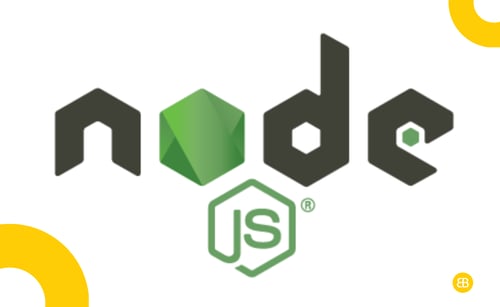Node.js: Build Fast, Scalable, and High-Performance Web Applications

Node.js is a popular JavaScript runtime that lets developers build fast, scalable server-side applications using JavaScript on the backend.
Why It Matters
- Enables faster development by using the same language on frontend and backend.
- Supports real-time features like chats, notifications, and live updates.
- Scales efficiently, making it ideal for startups and high-traffic apps.
- Backed by a large ecosystem of tools and libraries.
- Reduces time-to-market with event-driven, non-blocking architecture.
Use This Term When...
- You're discussing backend technologies with your development team.
- You're building an app that needs real-time data processing.
- You're deciding your backend tech stack for a new product.
- You're integrating APIs or handling large volumes of requests.
- You're hiring developers familiar with full-stack JavaScript.
Real-World Example
In one of our projects, the backend was built using Node.js, enabling high-speed data processing and real-time API calls. This choice contributed to faster response times and efficient handling of concurrent user sessions.
Founder Insight
Node.js is ideal for MVPs, but it’s also powerful enough to handle enterprise-grade backends. Choose it when you need speed, flexibility, and developer productivity.
Key Metrics / Concepts
- Response Time – How quickly the backend responds to API calls.
- Event Loop Utilisation – Efficiency of handling asynchronous operations.
- Memory Usage – RAM consumed by the server during app operations.
- Requests Per Second (RPS) – Number of client requests handled efficiently.
- Error Rate – Frequency of backend failures or crashes.
Tools & Technologies
- Express.js – A fast, minimal Node.js web application framework.
- NestJS – Scalable Node.js framework for building efficient server-side apps.
- PM2 – Process manager for Node.js apps to ensure performance and reliability.
What’s Next / Future Trends
With the rise of microservices, serverless, and edge computing, Node.js is evolving to integrate better with cloud-native environments. Expect deeper AI and real-time IoT integrations.
Related Terms
Backend Development – Where Node.js is most commonly used.
API Integration – Node.js often powers the server-side for APIs.
JavaScript Frameworks – Ecosystem where Node.js plays a core role.
Full-Stack Development – Often uses Node.js with React or Angular.
Microservices Architecture – Node.js supports modular, service-based app structures.
Helpful Videos / Articles / Pages
Blog: Benefits of Learning ReactJS and Node.js as a Web Developer
Blog: The Best Programming Languages to Learn in 2021
Blog: React vs Vue: What’s the Best Javascript Framework in 2021
Call to Action
Need a high-performing backend for your app idea? Let’s explore how Node.js can give you speed, scalability, and flexibility from day one.